Breast Cancer: Why Getting a Second Opinion Matters
A breast cancer diagnosis can change your life. In the moments, days, and weeks that follow, the decisions you make about your healthcare will impact your life forever. That’s why it’s important that those decisions are well-informed.
According to Breastcancer.org, 12 percent of women will get breast cancer in their lifetime. While breast cancer death rates have been decreasing year over year, it’s estimated that more than 40,000 succumbed to the disease in 2015 in the United States alone. Of all cancers, breast cancer death rates are the second highest for women.
A breast cancer diagnosis isn’t just shocking, it’s earth-shattering. And often, the need to make treatment decisions is an urgent one. But, experts say, taking the time to fully understand your diagnosis and options is important — including getting a second opinion when warranted.
“A second opinion can provide a fresh look at a case, and can lead to more individualized care,” says Dr. Homayoon Sanati, medical director of the MemorialCare Breast Center at Orange Coast Memorial Medical Center in Fountain Valley, California. “I always encourage my patients to get second opinions.”
ADVERTISEMENT
The National Breast Cancer Coalition suggests that women seek a second opinion at at least two junctures in their breast cancer journey: first at the time of diagnosis, and then regarding treatment.
Confirming your diagnosis
The pathologic second opinion will confirm or refute the diagnosis itself. “Regarding a breast cancer diagnosis, a second pathology opinion can be valuable to confirm the diagnosis,” says Dr. Maggie DiNome, director of the Margie Petersen Breast Center at John Wayne Cancer Institute in Santa Monica, California.
A second doctor will review your breast tissue slides and come to their own conclusions about what they reveal.
Giving you confidence in your treatment plan…
Like diagnostic second opinions, second opinions for your treatment path can be valuable even when they do not reveal anything different from the initial treatment plan.
“For example,” says Dr. DiNome, “a lumpectomy (lump removal) surgery can yield the same survival outcome as the bigger mastectomy surgery, so the choice often lies with the patient.”
Talking with a second doctor can make these options clearer and help the patient make difficult decisions.
“More often than not, second opinions regarding treatment confirm the first physician’s recommendations, and it is perhaps worth it for that reason alone — to give the patient confidence that she is proceeding down the correct path,” says DiNome.
That was very much the case for Mandi Hudson, author of Darn Good Lemonade. “The second opinion after my metastatic diagnosis was really helpful in solidifying that I was making the right choices in my treatment plan at the time,” she says.
As her cancer has progressed, she says she has continued to weigh her options and explore what treatment plans suit her the best. “A good oncologist supports you when you get a second opinion.”
…Or helping you find a different path
Other times, getting a second treatment opinion can help you identify a treatment plan that better suits your personal or work-related needs.
ADVERTISEMENT
“When I first met with my radiation oncologist, he offered only one option for radiation, a protocol that involved five daily treatments a week for seven weeks,” recalls Kathi Kolb, author of Accidental Amazon. “That was too much and too long for me. I [needed] to get back to my job and get a regular paycheck again.”
Kolb sought other options, finding a three-week radiation program that was being researched in Vancouver. “I was miffed that [my radiation oncologist] hadn’t offered this option in the first place, but I was glad I looked into it and was able to get it,” she says.
Ellen Snapp, a member of Healthline’s Living with Breast Cancer community, faced a similar dilemma. “Had I received a second opinion, I might have been successful in convincing my doctor to appeal my case to my insurance company for a bilateral mastectomy,” she wrote on Facebook.
Such an option would have meant she’d only need chemotherapy, not radiation. “Instead of moving on with my life 12 months after being diagnosed, I am still dealing with the extreme after-effects of radiation.”
There may be barriers that make getting a second opinion difficult, according to Dr. Sanati. “One is a lack of time and availability,” he says. “The other could be financial, as some medical insurance plans do not have the second opinion physician in their networks, which can increase the cost for the patient.”
ADVERTISEMENT
Talking at length with your physician and insurance company regarding your diagnosis and options could help you manage these potential obstacles.
read next

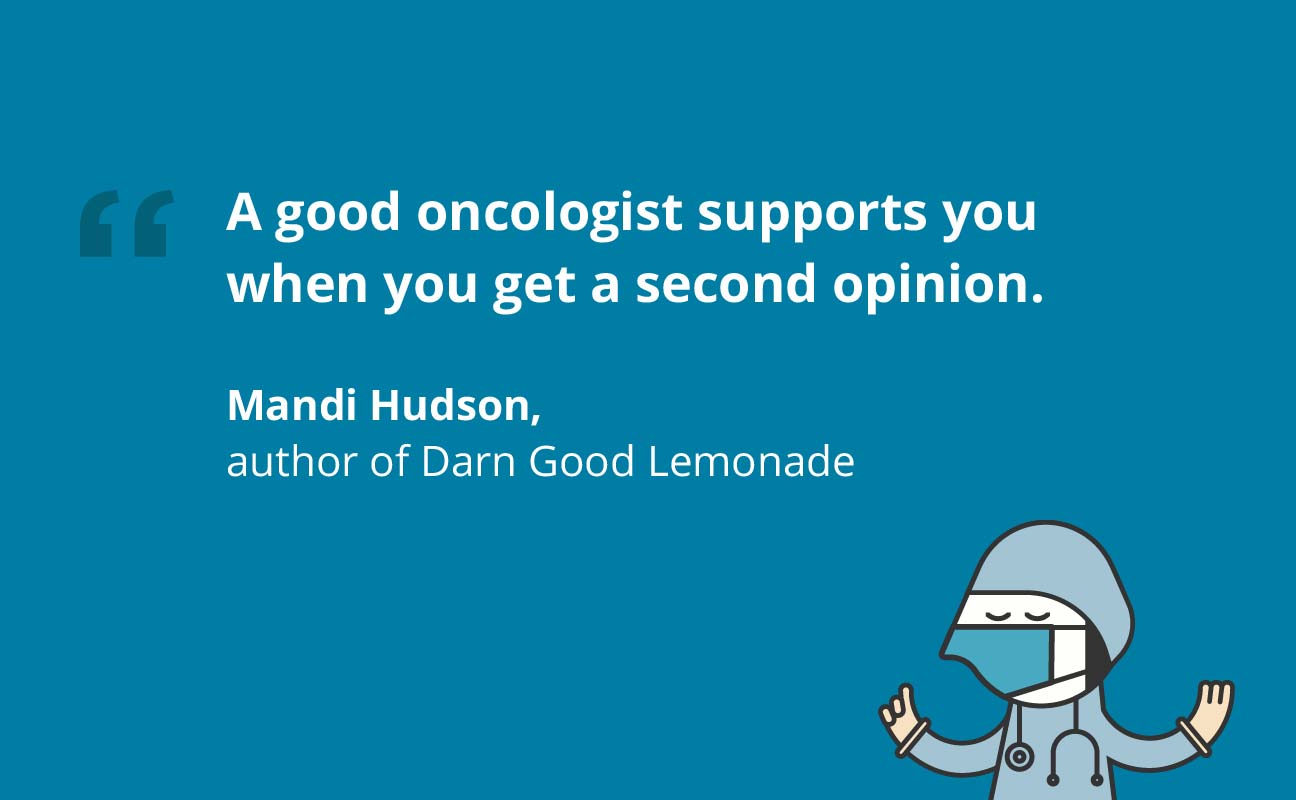
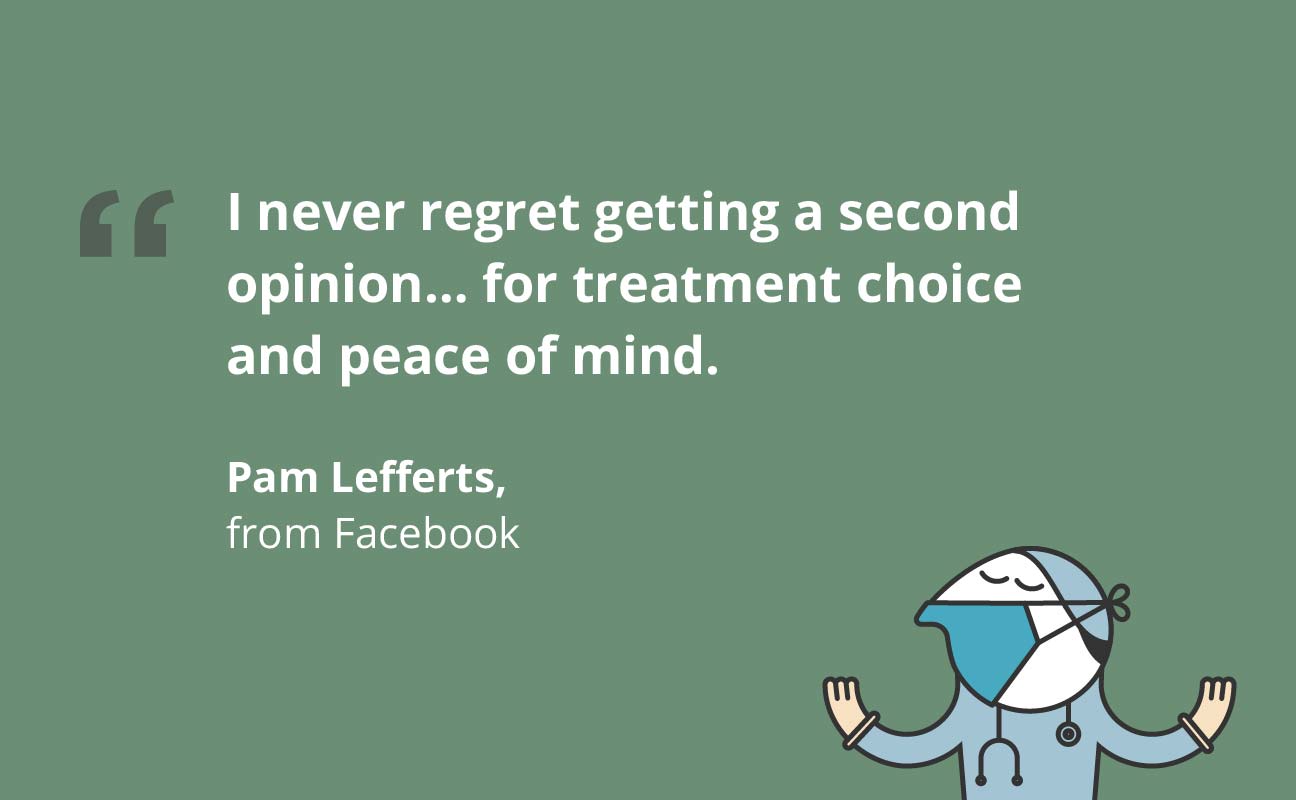
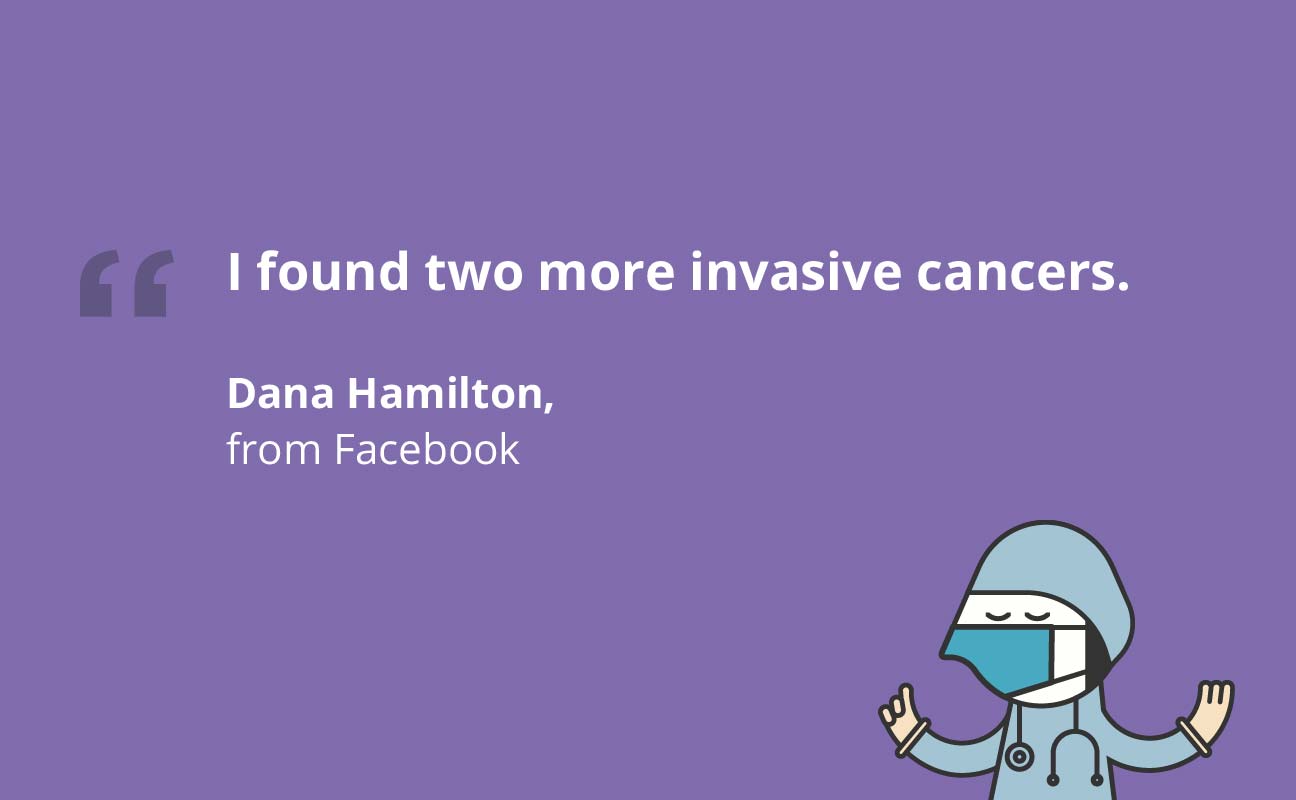
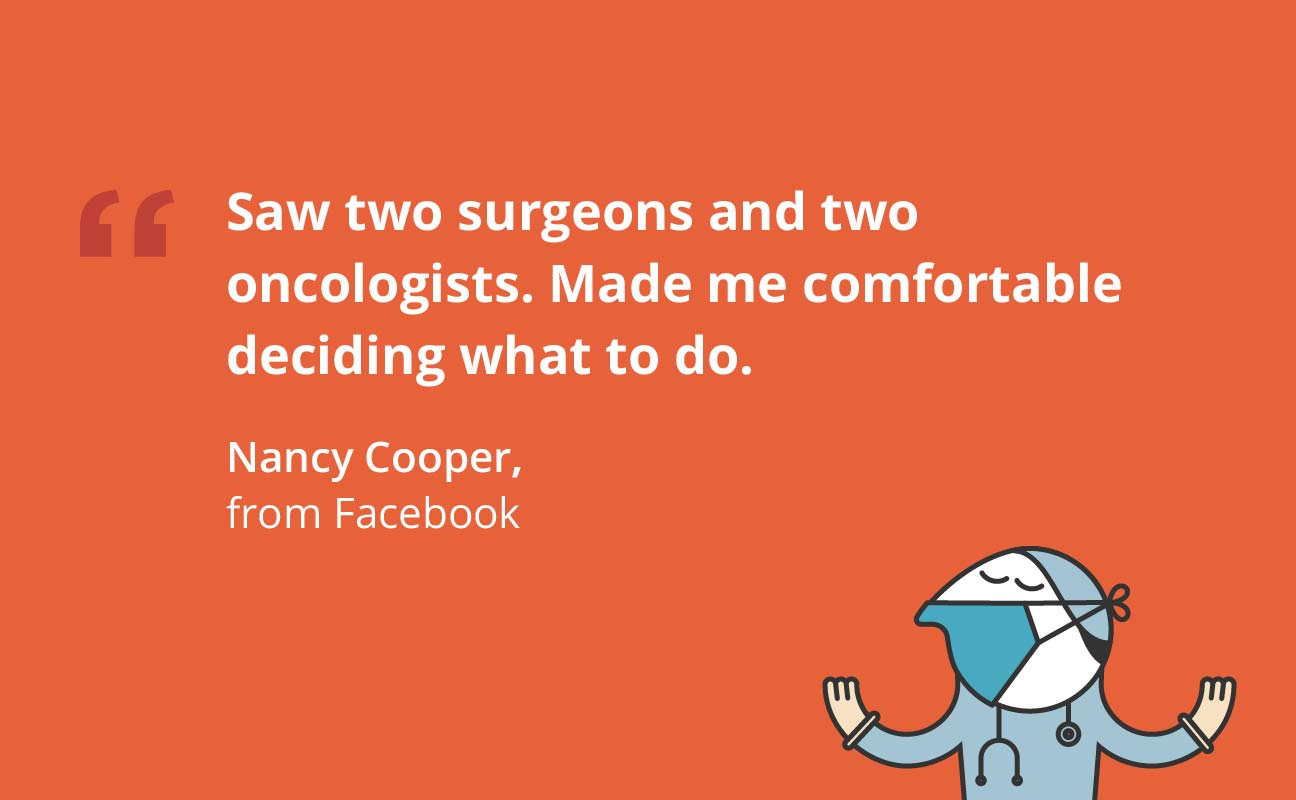
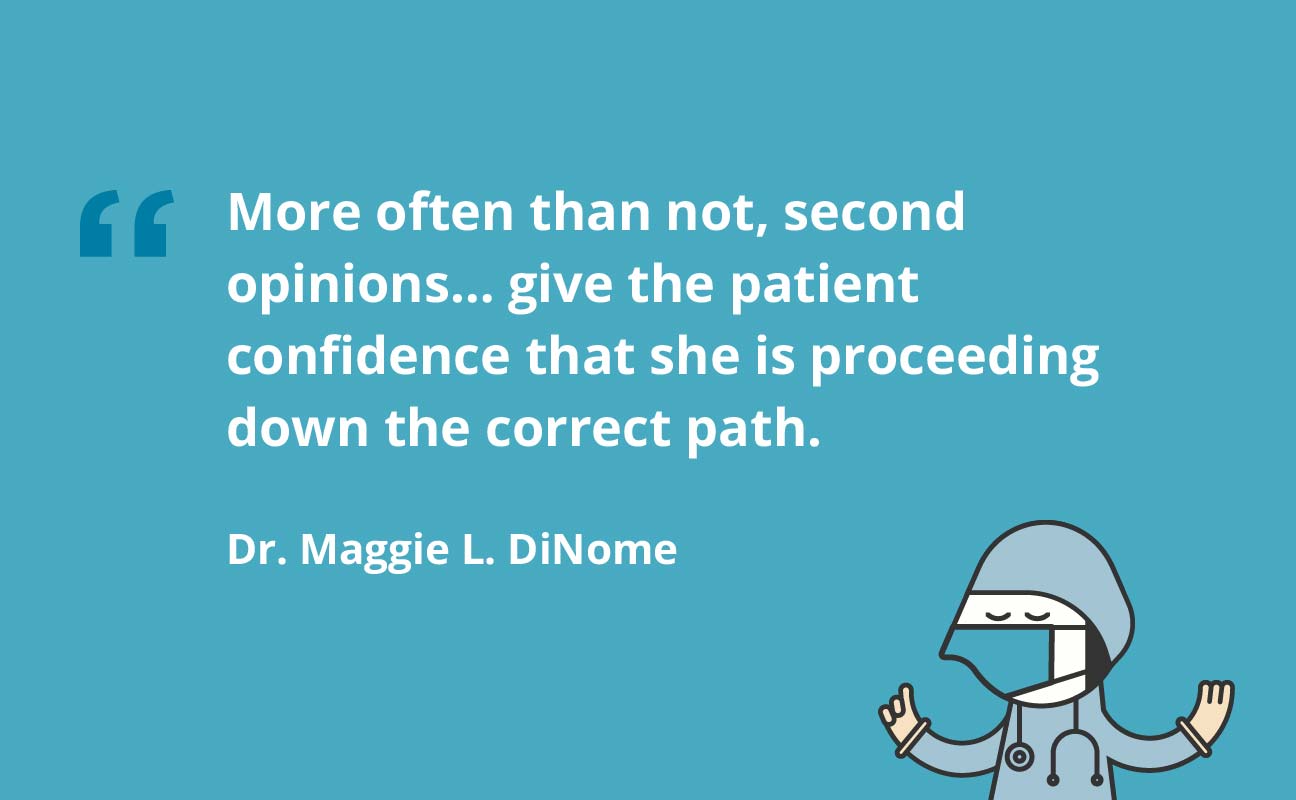
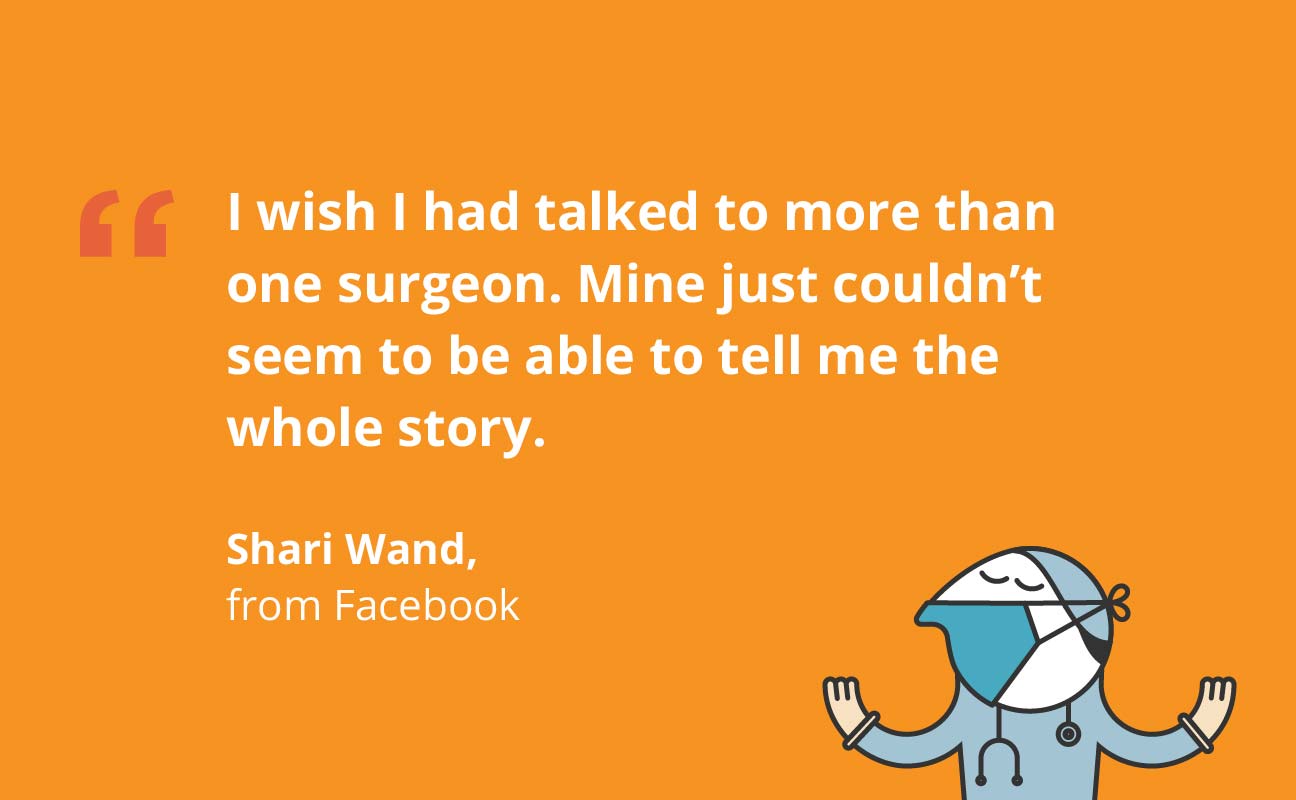
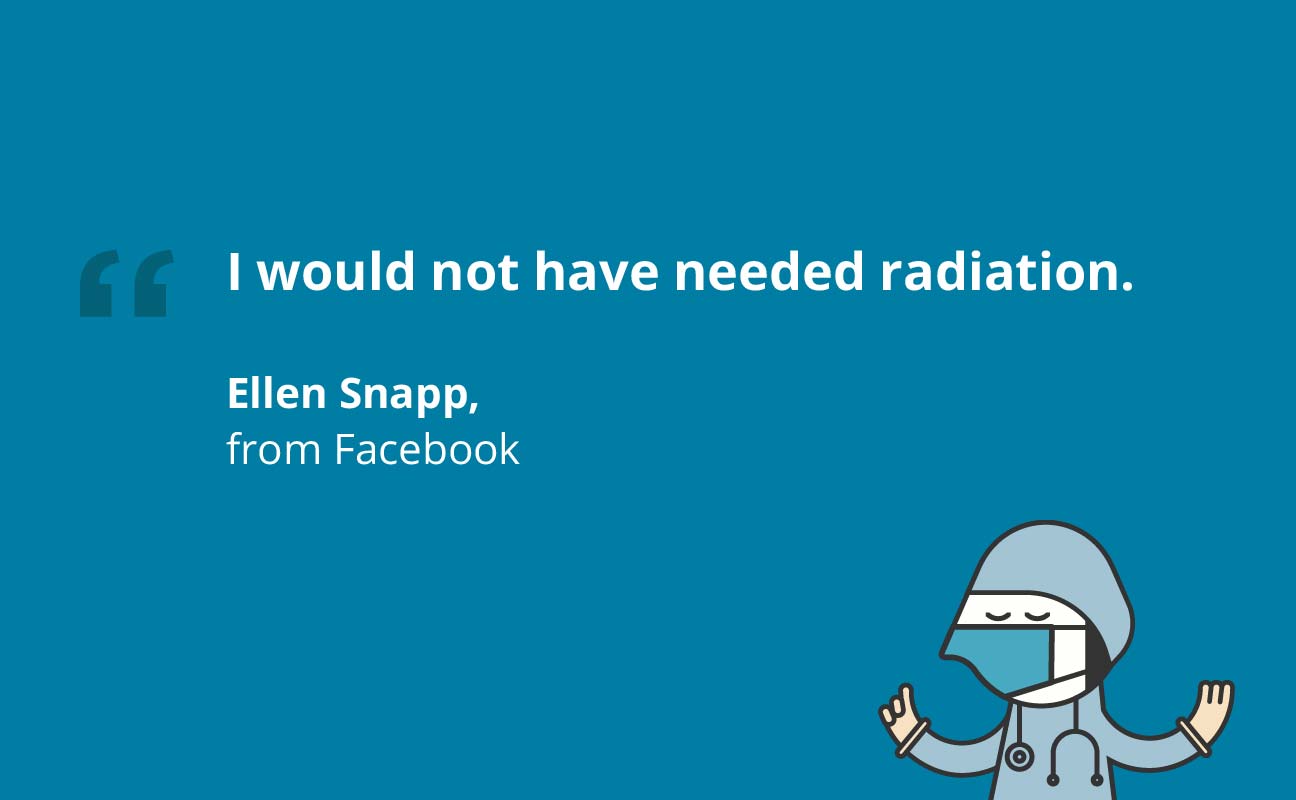






.jpeg)

No comments:
Post a Comment